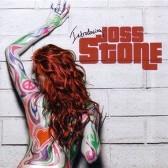|
Introducing Joss Stone Joss Stone (Virgin) |
The problem with Joss Stone’s third album, Introducing Joss Stone, is not the fact that it takes at least five listens before its exquisite Raphael Saadiq-produced grooves and Stone’s often off-kilter lyrical delivery begin to sound like a cohesive, melodic pop album you can sing along with (by this point, though, the revelation is instantaneous and powerful). The problem with the album is not how easily and nonchalantly Stone shifts back and forth between soul, funk, and hip-hop either (Lauryn Hill and Common even make guest appearances). The problem also has nothing to do with the intro called “Change,” a spoken-word track performed by none other than ex-soccer-enforcer-turned-actor Vinnie Jones, who apparently took time out of his hectic Hollywood schedule to tell us, “We are born to change,” and that, “the truth is/you gotta have the balls to change.”
Actually, that last one is the problem. Stone has called her third album Introducing Joss Stone because, as the intro suggests, something has changed in her life — apparently, she’s escaped her evil label overlords — and, hell, it’s time to introduce the world to the new Joss Stone. Or maybe it’s the old Joss Stone, and we just weren’t given a glimpse before. Whatever. She’s still a white British girl singing American soul over hip-hop beats with a preternatural voice, and that’s not going to change.
In other words, the best way to enjoy this album, besides giving it room to grow on you, is to just ignore the title. It’s rubbish. Everything else? Not rubbish. Especially the Motown stomp of “Girl They Won’t Believe It,” the Aretha-quoting “Headturner,” the horny sex plea “Tell Me ’Bout It,” and the string-heavy ballad “What Were We Thinking,” which, if you’re a fan of Stones’s last effort, Mind, Body & Soul, shares the most genes with that material.
— Cole Haddon
|
Palms and Runes, Tarot and Tea: A Michael Penn Collection Michael Penn (Legacy) |
Eighteen years ago, the future looked (and sounded) grand for Michael Penn: A pseudo-heartthrob turn in the video for the top-30 hit “No Myth” was a potential step out of the shadows of his famous brother, Sean. He was “Romeo in black jeans,” cresting on a mainstream jangle wave stirred up two years earlier by Crowded House.
That wave crashed, though, leaving Penn’s career in the all-too-common pop dynamic of creative peaks and commercial valleys, record contracts flying in and out of the picture until the inevitable self-release of Mr. Hollywood, Jr. 1947 last year. (It’s reissued alongside this retrospective, and beefed up with six bonus live songs.)
Palms and Runes, Tarot and Tea may not remedy any of Penn’s commercial woes (one doubts he would even care) but what it does do is cast a heartfelt spell of beauty. Twenty songs mining all five of his albums (each track handpicked by Penn himself) result in what can best be described as a set list: no chronology, just a story unfolding. Like a smart man’s Tom Petty, or a young man’s Bob Dylan, Penn’s wordplay (“Whatever news you had, whatever shoes you had, whatever made you mad enough” from “I Can Tell”) and winced pitch-hopping have become a beloved signature among his still-listening fan base, who will lap this up. For some coincidental timeliness, check out last year’s “Walter Reed.”
— Billy Manes



